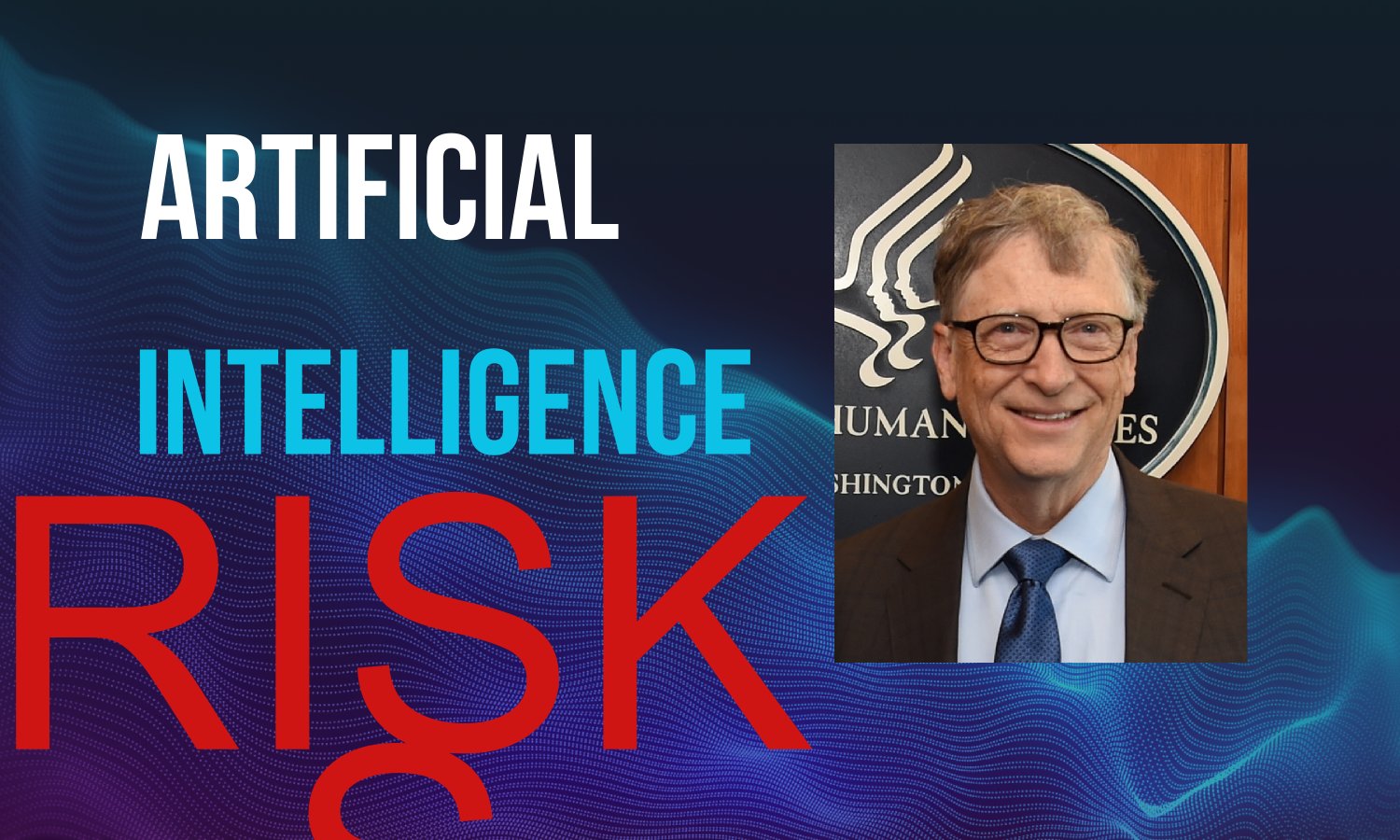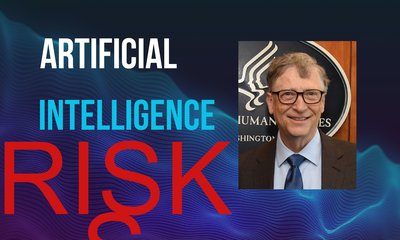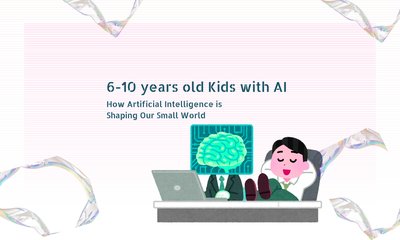2025 - The Unchecked Advancement of Artificial Intelligence: A Growing Concern
By tung.nguyenthanh, at: March 27, 2025, 11:03 a.m.
Estimated Reading Time: __READING_TIME__ minutes


Introduction
Artificial Intelligence (AI) has swiftly transitioned from a futuristic concept to a cornerstone of modern life, influencing everything from healthcare diagnostics to financial forecasting. There is an increase in the number of great LLM models/services (ex: https://chat.openai.com/, https://www.perplexity.ai/) and AI agents (ex: https://agent.ai/, https://gooey.ai/explore)
While AI offers remarkable benefits, its rapid, unchecked development raises significant concerns. Notably, tech luminary Bill Gates has highlighted the potential dangers of uncontrolled AI, warning society to proactively address these challenges to ensure AI serves humanity positively.
Bill Gates' Perspective on AI Risks
Bill Gates, co-founder of Microsoft and a leading voice in technology and philanthropy, has consistently expressed apprehension about the unchecked progression of AI. In discussions, Gates emphasizes that while AI holds transformative potential, it also presents substantial risks if not properly managed. He points out that AI could be exploited for malicious purposes, such as cyberattacks or bioterrorism, and stresses the importance of developing defensive AI systems to counteract these threats. Gates advocates for a balanced approach, promoting AI innovation while implementing robust safeguards to prevent misuse.
In addition to Bill Gates, several prominent figures have expressed concerns about the unchecked development of artificial intelligence (AI):
-
Elon Musk: The CEO of SpaceX and Tesla has frequently highlighted AI as a significant threat to humanity. He estimates there's a 10-20% chance that AI could "go bad" and pose existential risks. Musk emphasizes the need for proactive regulation and oversight to prevent potential negative outcomes.
-
Stephen Hawking: The renowned physicist pointed that the creation of powerful AI could be "either the best or the worst thing" for humanity. He expressed concerns that AI might replace humans if not properly managed, highlighting the importance of aligning AI development with human values.
-
Sam Altman: As the CEO of OpenAI, Altman has acknowledged the transformative potential of AI but also its risks. He advocates for careful consideration and implementation of safety measures to ensure AI benefits society without unintended harmful consequences.
Potential Dangers of Uncontrolled AI
-
Misinformation and Deepfakes
AI's ability to generate highly realistic fake content, known as deepfakes, can lead to widespread misinformation. Such content can undermine public trust, manipulate public opinion, and destabilize societies by spreading false information that is indistinguishable from reality. Vietnam has been seeing a huge number of scams in 2024.
-
The integration of AI into cyber operations can enhance the sophistication of cyberattacks. AI-driven attacks can adapt and evolve, making them more difficult to detect and counteract, potentially leading to significant breaches in national security and personal data.
-
The development of AI-controlled weapons systems raises ethical and security concerns. These autonomous weapons, operating without human intervention, could make life-and-death decisions, leading to potential misuse and escalation of conflicts.
-
Economic Displacement
AI's capability to perform tasks traditionally handled by humans threatens to disrupt labor markets. Automation could lead to significant job losses, particularly in sectors like telesales and support, exacerbating economic inequality and social unrest. Ex: Australia is facing a high rise in job losses.
The Importance of AI Regulation and Ethics
To mitigate these risks, establishing robust regulatory frameworks and ethical guidelines is imperative. This includes developing defensive AI technologies to counter malicious uses, creating policies to manage AI-driven job displacement, and ensuring that AI systems align with human values and ethics. International collaboration is essential to set global standards and prevent an AI arms race that could have catastrophic consequences.
Ex: Hawking, S. (2016, October 19). Stephen Hawking: AI could be 'best or worst thing' for humanity.
Balancing Innovation with Caution
While addressing these concerns, it's crucial to recognize AI's potential benefits. In healthcare, AI can assist in diagnostics and personalized treatment plans. In education, it can provide tailored learning experiences. Balancing innovation with caution involves fostering AI advancements that enhance human well-being while implementing safeguards to prevent misuse. Public awareness and education play pivotal roles in understanding AI's potential and associated risks, empowering individuals to engage in informed discussions about its future.
AI enhances diagnostics and personalizes treatment plans by analyzing complex medical data. For instance, AI algorithms can interpret medical images such as X-rays, CT scans, and MRIs with high precision, aiding in early disease detection and improving patient outcomes.
In the educational sphere, AI facilitates personalized learning by adapting content to individual student needs. AI-powered platforms analyze students' learning patterns, strengths, and areas for improvement, delivering customized content and exercises. This adaptive learning approach enhances engagement and fosters better educational outcomes.
Ensuring Responsible AI Integration
While AI offers significant benefits, it's importance to implement safeguards to prevent misuse. Establishing robust ethical guidelines and regulatory frameworks ensures AI technologies align with human values and societal needs. Public awareness and education about AI's potential and associated risks empower individuals to engage in informed discussions, promoting responsible development and application of AI systems.
Conclusion
The unchecked advancement of AI presents a complex challenge that requires immediate and collaborative action. Drawing from insights by thought leaders like Bill Gates, it's evident that while AI offers transformative possibilities, it also poses significant risks if left uncontrolled. Proactive measures, including robust regulations, ethical guidelines, and public engagement, are essential to ensure that AI serves as a tool for human advancement rather than a catalyst for unforeseen consequences.

![[Useful Site Review] agent.ai](/media/filer_public_thumbnails/filer_public/e2/bb/e2bb33be-933a-46d0-b36d-2c32c588a74b/agentai_1.png__400x240_crop_subsampling-2_upscale.png)

![[Useful Site Review] bolt.new](/media/filer_public_thumbnails/filer_public/14/aa/14aa7bfa-6862-4201-b170-76411ca92702/ai_-_boltnew_1.png__400x240_crop_subsampling-2_upscale.png)

